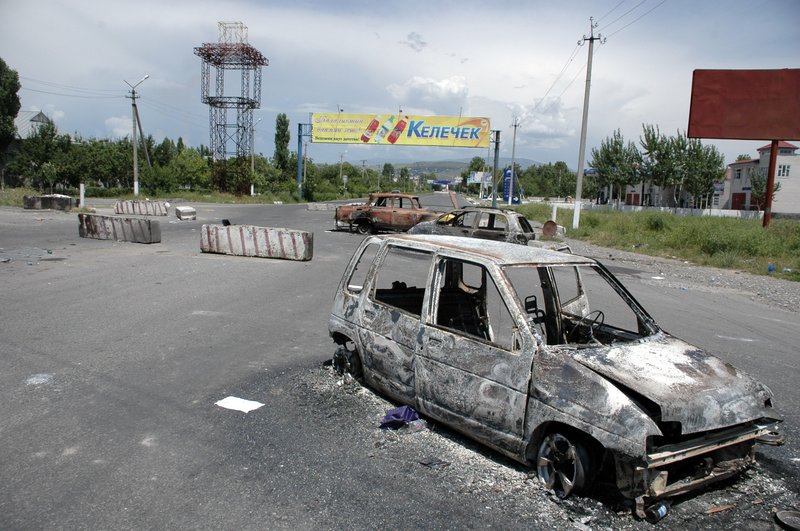Kyrgyz mobs burned Uzbek villages, slaughtered their residents and looted police stations Sunday in the worst ethnic rioting this Central Asian nation has seen in 20 years, sending more than 75,000 Uzbek refugees fleeing across the border into Uzbekistan.
Most of the Uzbek refugees were elderly people, women and children, and many had gunshot wounds, the Uzbek Emergencies Ministry said in a statement carried by Russia’s RIA Novosti news agency. It said refugee camps were being set up for them in several areas of Uzbekistan.
Fires set by rioters have destroyed most of Osh, the country’s second-largest city, and food was scarce after widespread looting. Triumphant crowds of Kyrgyz men took control of most of Osh on Sunday as the few Uzbeks still left in the city of 250,000 barricaded themselves in their neighborhoods.
The rioting has significant political overtones. Former President Kurmanbek Bakiyev was ousted in a bloody uprising in April and fled the country. Uzbeks have backed Kyrgyzstan’s interim government, while many Kyrgyz in the south support the toppled president.
Interim President Roza Otunbayeva blamed Bakiyev’s family for instigating the unrest, saying it was aimed at derailing a June 27 constitutional referendum and new elections scheduled for October. A local official said Bakiyev supporters had attacked both Kyrgyz and Uzbeks to ignite the rioting.
From his self-imposed exile in Belarus, Bakiyev issued a statement denying any role in the violence and blaming interim authorities for failing to protect the people.
The interim government has ordered troops to shoot rioters dead but even that has failed to stop the spiraling violence that has left more than 100 people dead and about 1,250 wounded since Thursday night. Doctors say even that toll is far too low because wounded minority Uzbeks are too afraid of being attacked again to go to hospitals.
The rampages spread quickly Sunday to Jalal-Abad, another major southern city, and its neighboring villages, as mobs methodically set Uzbek houses, stores and cafes on fire. The rioters seized an armored vehicle and automatic weapons at a local military unit and attacked police stations around the region trying to get more firearms.
Kyrgyzstan hosts both U.S. and Russian military air bases, but they are in the north, away from the ethnic rioting.
Kyrgyzstan’s interim government had asked Russia for military help Saturday to quell the rioting, but the Kremlin refused.
But Russia on Sunday sent a battalion of paratroopers — about 300 people — to reinforce security at its air base, the Interfax news agency reported.
